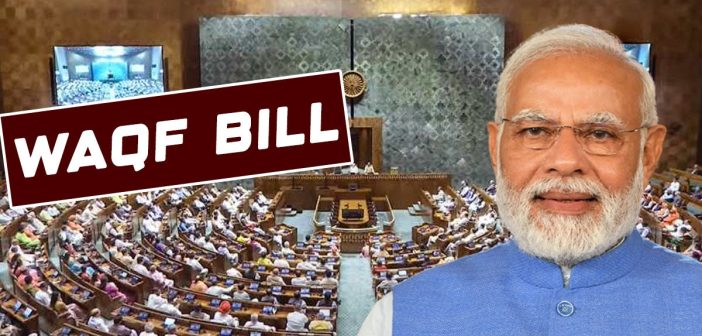India has embarked on a pivotal journey to modernize the governance of Waqf properties with the introduction of the Waqf (Amendment) Bill, 2025. Passed by the Ministry of Minority Affairs, this bill aims to address inefficiencies in the existing Waqf Act, 1995, while ensuring transparency, inclusivity, and enhanced government oversight in the management of Waqf properties across the country. The legislation heralds a new era of streamlined processes and accountability for Waqf boards and related institutions.
The bill focuses on revising key definitions of Waqf while updating procedural frameworks such as property registration, surveys, and record management. By integrating modern technology into Waqf record-keeping, the legislation seeks to rectify delays and inefficiencies that have plagued the administration of Waqf properties for decades.
One of the most transformative aspects of the bill is its approach to property formation and rights. The amendment stipulates that Waqf properties can only be formed through declarations or endowments, removing the provision for formation by user. The bill also ensures inheritance rights for female heirs under Waqf-alal-aulad provisions, a progressive step that addresses gender inequality. Additionally, government properties identified as Waqf will cease to hold Waqf status, with disputes resolved by collectors who report findings to state governments.
A key challenge historically faced by Waqf management has been the irrevocability of Waqf properties, encapsulated in the principle “once a Waqf, always a Waqf.” This has led to contentious disputes, such as claims over islands in Bet Dwarka, which have often resulted in legal complexities and delays. The new legislation seeks to eliminate ambiguities and streamline dispute resolution mechanisms.
The amendment introduces a more inclusive composition for Waqf boards and councils. Non-Muslim members and representatives from diverse Muslim communities such as Shias, Sunnis, Bohras, and Agakhanis will now serve on these boards. This measure recognizes the diverse stakeholders involved in Waqf property management and aims to enhance efficiency and fairness. Two members of the Central Waqf Council must be non-Muslim, and representation of women, including two Muslim members on state Waqf boards, is mandated to ensure gender diversity.
The reform addresses governance issues by empowering state collectors to conduct surveys and mandating that pending surveys be carried out under state revenue laws. This replaces previous provisions that relied heavily on poorly coordinated survey commissioners, whose inefficiencies have caused significant delays in Waqf property registration across various states, including Gujarat, Uttarakhand, and Uttar Pradesh.
The bill also abolishes the finality of Waqf tribunal decisions, allowing appeals to High Courts within 90 days. This significant change enhances judicial oversight and transparency, addressing concerns about unchecked authority and poor accountability within Waqf tribunals. Furthermore, the central government now holds expanded powers to audit Waqf accounts and oversee governance, social, economic, and welfare activities within Waqf institutions.
In a historic move, the outdated Mussalman Wakf Act of 1923 is set to be repealed, consolidating all rules under the amended 1995 Waqf Act. This repeal eliminates legal contradictions and ensures uniformity in Waqf property management across the country, aligning India’s legislative framework with its vision for modernization.
The Waqf (Amendment) Bill, 2025, reflects India’s commitment to addressing the constitutional challenges posed by the application of Waqf laws to a single religion. It responds to ongoing debates, including a Public Interest Litigation questioning the Act’s constitutional validity, ensuring that Waqf management transcends religious boundaries while adhering to administrative and financial principles.
By redefining the formation, registration, and management of Waqf properties, the bill establishes a forward-looking framework designed to balance traditional practices with contemporary needs. The inclusion of non-Muslim and gender-diverse members, improved survey protocols, and enhanced judicial oversight exemplify the government’s resolve to modernize Waqf governance.
These changes aim to build a more equitable and efficient system, enhancing trust among stakeholders and driving meaningful reforms in Waqf property administration. As the country moves forward with these transformative measures, India is set to lead by example in creating structured, transparent, and inclusive frameworks for the management of religious and community properties.





